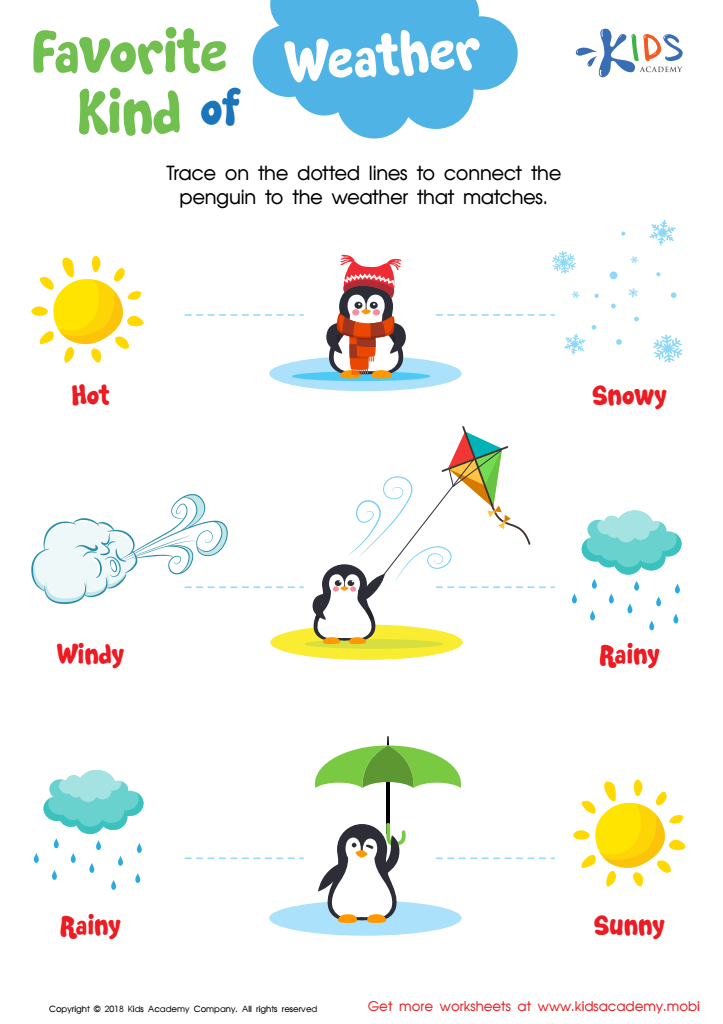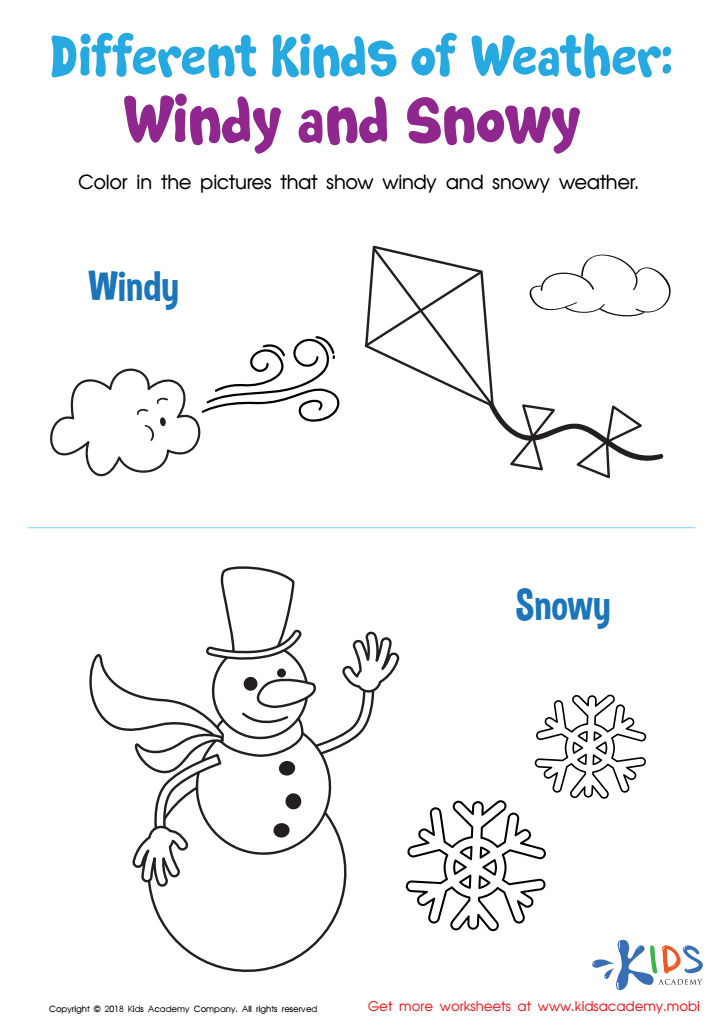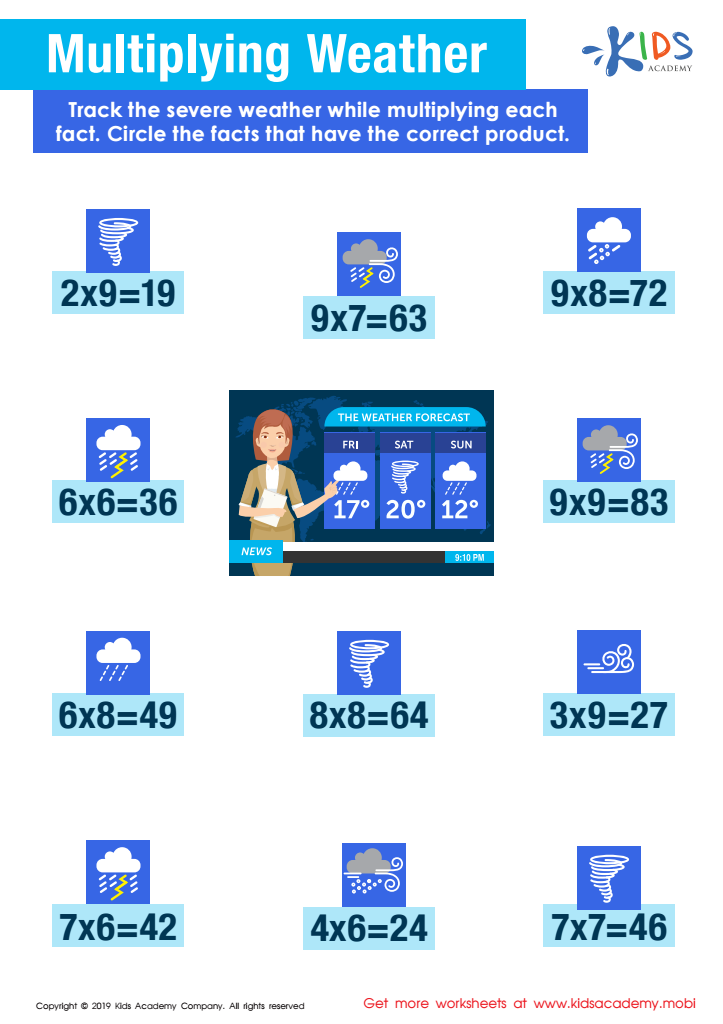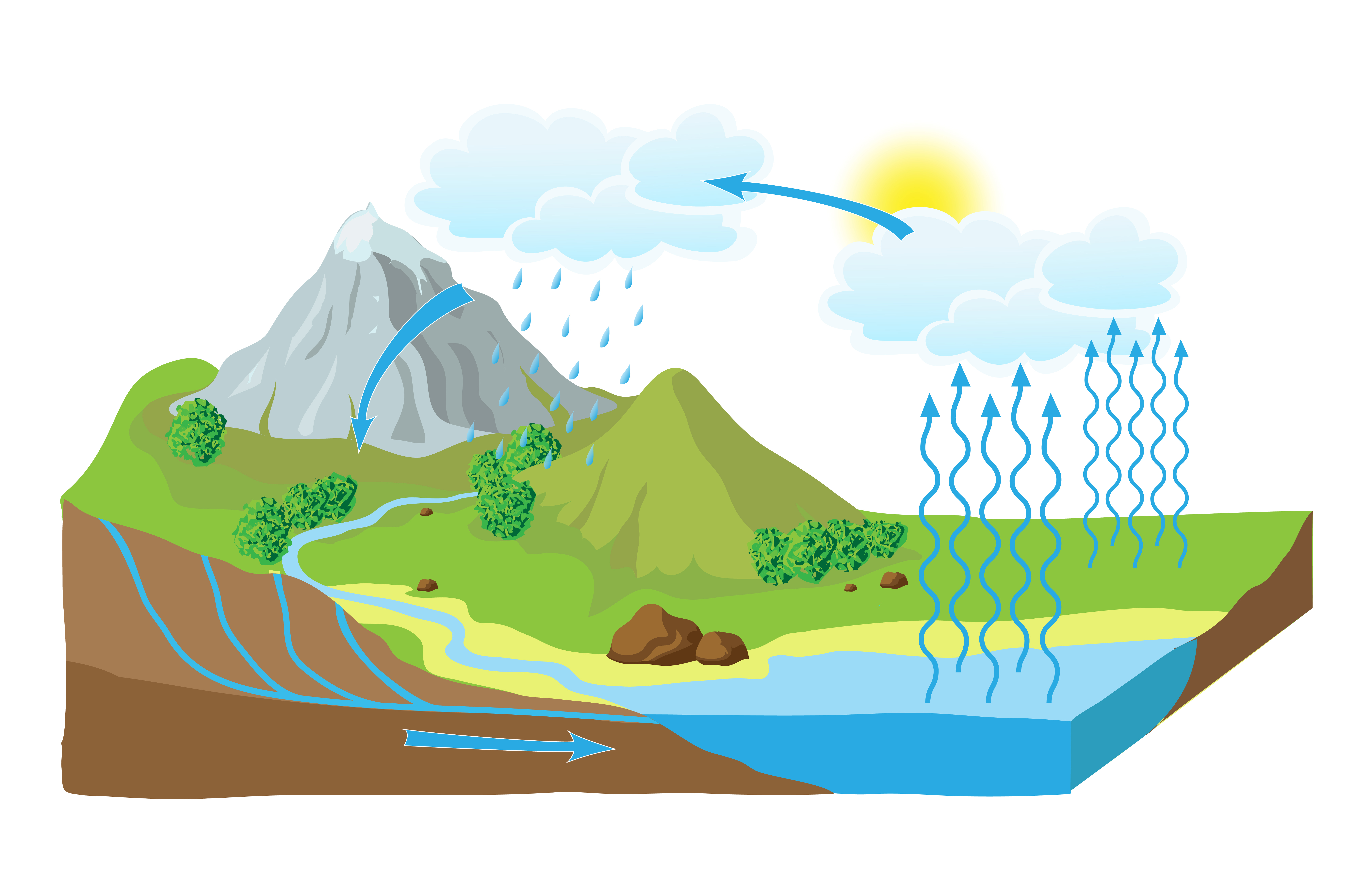Weather Vocabulary Weather Worksheets for Ages 3-8
4 filtered results
-
From - To
Explore our engaging Weather Vocabulary Worksheets designed specifically for children ages 3-8! Perfect for early learners, these worksheets introduce essential weather terms in a fun and interactive way. Kids will enjoy a blend of coloring activities, word searches, and fill-in-the-blank exercises while gaining a solid understanding of weather concepts. Our resources not only enhance vocabulary skills but also encourage critical thinking and creativity. Ideal for use in the classroom or at home, these worksheets make learning about weather exciting and accessible. Dive into a world of fun, educational activities that spark curiosity and foster a love for science among young learners!


Favorite Kind of Weather Worksheet


Different Kinds of Weather: Windy and Snowy Worksheet


Multiplying Weather Worksheet
Weather vocabulary is essential for children ages 3-8 as it plays a pivotal role in their cognitive and social development. Understanding weather-related terms such as “rainy,” “sunny,” “stormy,” and “cloudy” enables young learners to make sense of their environment. This understanding lays the groundwork for scientific inquiry, fostering critical thinking skills as children observe weather patterns and express their observations.
Moreover, discussing weather encourages curiosity and creativity. When parents and teachers engage children in conversation about the weather, they promote language development and vocabulary acquisition, critical at this formative age. It can inspire artistic expression through activities like drawing weather scenes or storytelling.
Additionally, weather vocabulary provides practical life lessons. Knowledge of weather conditions helps children make informed choices about dressing appropriately or planning outdoor activities. This understanding builds resilience and adaptability, qualities essential for navigating life’s unpredictability.
Furthermore, incorporating weather discussions into daily routines strengthens the parent-child and teacher-student bond, creating a supportive learning atmosphere. Ultimately, cultivating a rich weather vocabulary equips children with the language skills and knowledge they need to understand the world around them, preparing them for lifelong learning.

 Assign to My Students
Assign to My Students





















